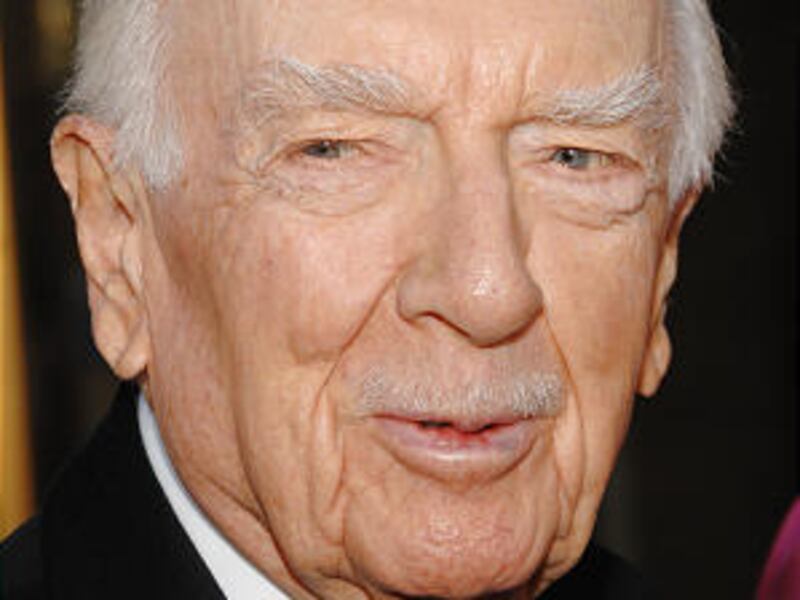Almost exactly three years ago, I stood in a hotel hallway chatting with Walter Cronkite.
Really.
The legendary CBS News anchorman, still as sharp as ever, had actually asked me how I thought his press conference with members of the Television Critics Association earlier that day had gone.
(Not that he would have recognized me from that crowd. But he noticed the press badge I was wearing around my neck.)
Honestly, I can't remember many details of our conversation. In part because a voice somewhere in my head was screaming, "It's Walter Cronkite! The Walter Cronkite!"
That is not the way I normally react when chatting with famous people. After almost two decades interviewing celebrities for a living, it's just part of the job.
Years ago, a former Deseret News managing editor actually told me I wasn't star-struck enough.
He might change his mind if he'd seen me with Cronkite.
I do recall that the retired anchorman was incredibly nice, polite and jovial. If he noticed how awestruck I was — and it's difficult to believe he could have missed it — he certainly didn't let it affect our conversation.
Cronkite was at the TCA press tour to promote an installment of the PBS series "American Masters" that profiled him. And he had a sort of "Oh, shucks" attitude about himself and his status as The Most Trusted Man In America.
"Golly, I don't have any concept that I belong in that pantheon of stars." he told critics about joining the long list of prominent people profiled on "American Masters."
How can you not love a guy who uses the world "golly"?
Cronkite passed away this past Friday at the age of 92, and the plaudits have been rolling in from, well, everywhere. Which is as it should be.
He lived a long, happy life, so there's no real need for sadness. Except, perhaps, because we will never see the likes of Walter Cronkite again.
That's not to say there aren't a lot of journalists in America who are as deserving of trust as he was. But it's a very different world today from the three-network universe Cronkite dominated at a time when a network newscast was hugely watched and incredibly important.
Important enough that when Cronkite — in a clearly labeled editorial — came out against the Vietnam War (after reporting from the conflict), it turned American public opinion against it.
Cronkite said it was one of his "proudest" moments.
If that were to happen today, he would be buried under attacks from not only politicians but politically motivated "journalists" on various 24-hour news networks. Alleged "journalists" who don't have — and never will have — the stature Cronkite built.
"There is a point at which it seems to me if an individual reporter has gained a reputation of being honest, fair as can be, and helps the American people in trying to make a decision on a major issue, I think we ought to take that opportunity," he told critics.
Amen.
e-mail: pierce@desnews.com

